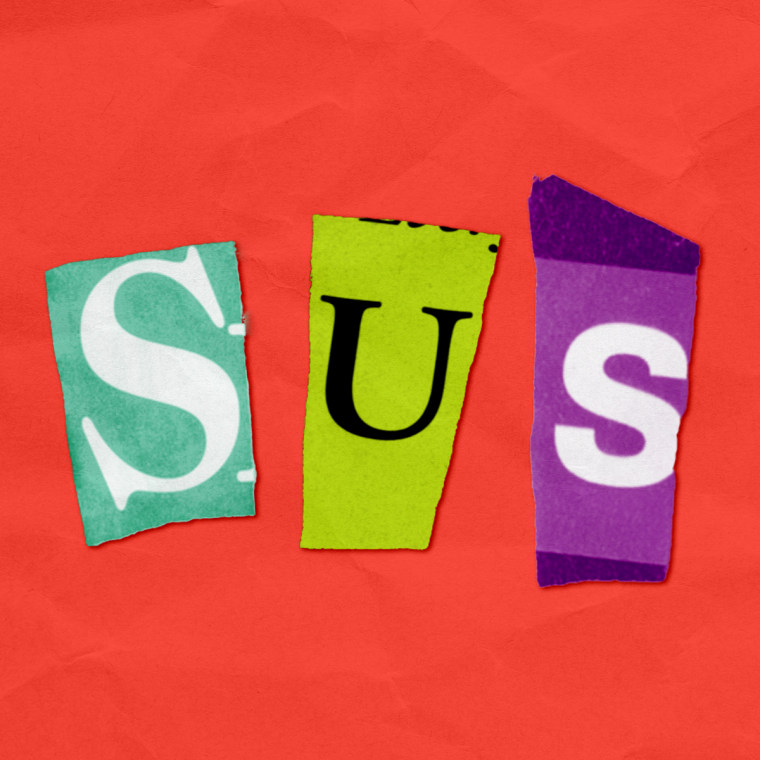"That's so sus, Mom!"
Got a kiddo in Generation Z or Generation Alpha? Then everything must be "sus."
"Sus" is short for "suspicious," according to Urban Dictionary, and it represents a distrust of something. "Sus" as a noun also means "suspect" and is "usually used to define someone or something that looks suspicious or untrustworthy," says the website.
It was the No. 1 slang word used by teens in 2023, according to a survey of more than 600 parents by the language learning platform Preply. In the survey, 62% of parents said "sus" is the most common word they hear from their teens and 65% of all parents surveyed said they understand what it actually means.
How to use "sus" in a sentence:
- "You didn't text me back last night — you're acting sus."
- "Don't be sus about where you're going."
- "There's a sus-looking person over there."
Where did 'sus' come from?
"Sus" is a slang word that's been attributed to the online game "Among Us." According to parent company InnerSloth, it's "a party game of teamwork and betrayal" in which up to 15 players complete tasks together while determining which figures are posing, evil imposters, aka "sus."
Adam Cooper, a teaching professor of linguistics at Northeastern University, held a discussion about the word “sus” in his history of English class in 2023, after inviting students to conduct mini-research projects on words of interest. Although Cooper wasn't aware of "sus" at the time, he was struck by its familiarity to students.
"I think that speaks potently to how much of an influence age can play as one dimension along which we can recognize these different patterns in language use, slang included," Cooper tells TODAY.com.
Cooper says that slang words like "sus" help people, often youth, claim their identities as a part of a group.
"Slang in general naturally pushes back against those in power and authority and that’s why we tend to associate it with younger generations or marginalized communities," he says.
Misuse a slang word and you'll reveal yourself as an outsider, says Cooper.
According to Sylvia Johnson, head of methodology at Preply, some kids say "sus" to indicate anything that feels "cringe," defined by Urban Dictionary as feeling embarrassed or ashamed.
"Kids nowadays interpret the word 'suspicious' as something slightly dodgy or uncomfortable," Johnson tells TODAY.com. "Children tend to take on these words and interpret it in their own way and when they find it difficult to locate, within their lexicon, another word to express their discomfort, they fall back on slang."
As teachers on TikTok catch up on new teen lingo, Johnson says, "There's a big debate in the educational world over whether (schools) should teach slang to students ... especially to language learners."
She adds, "Where are (teens) getting most exposure to their language outside the classroom? ... I would estimate that social media ... accounts for a large proportion of what they do in their free time."
Teaching kids with their hobbies and passions in mind, says Johnson, "is a way of connecting language to what they’re seeing in real life."
